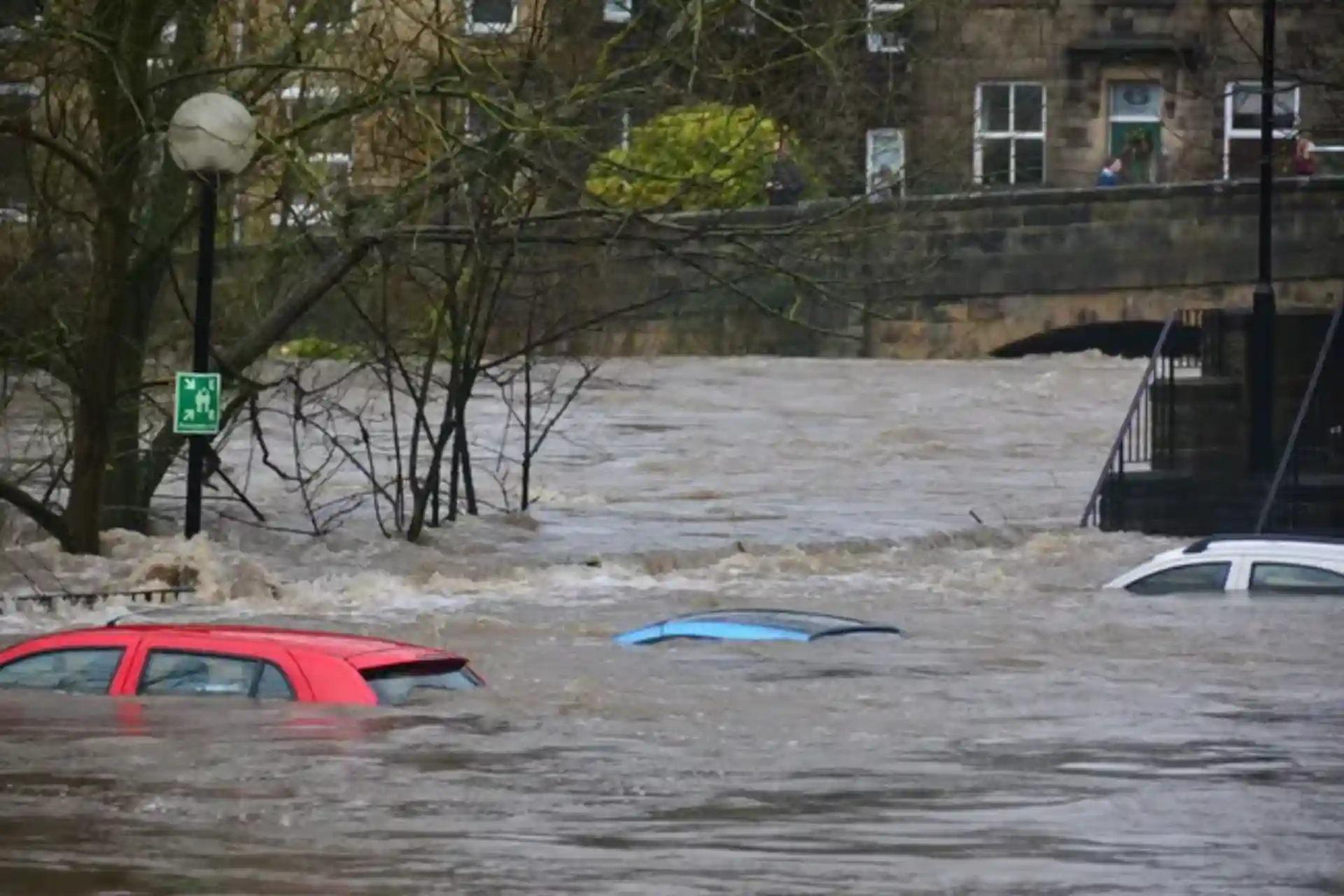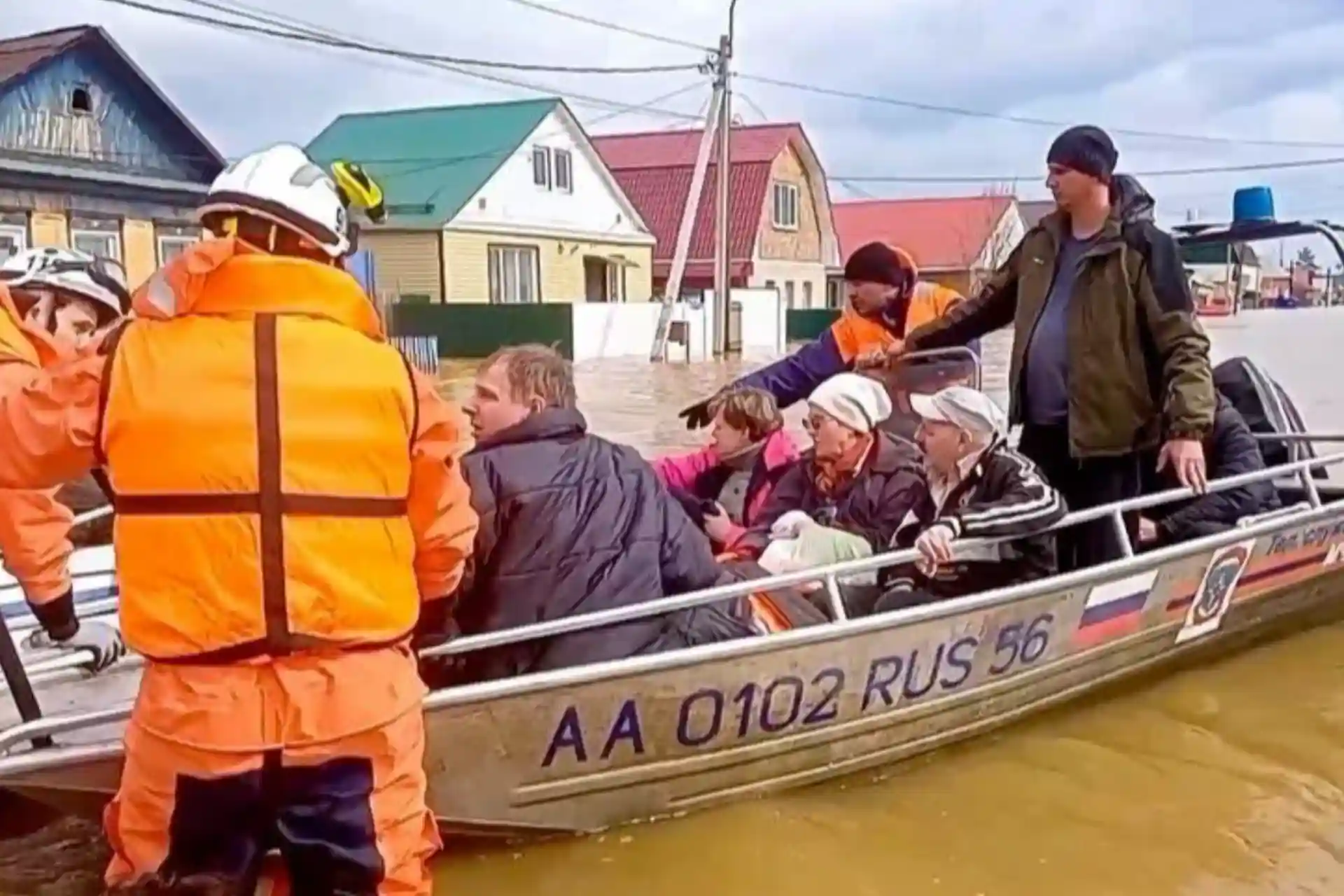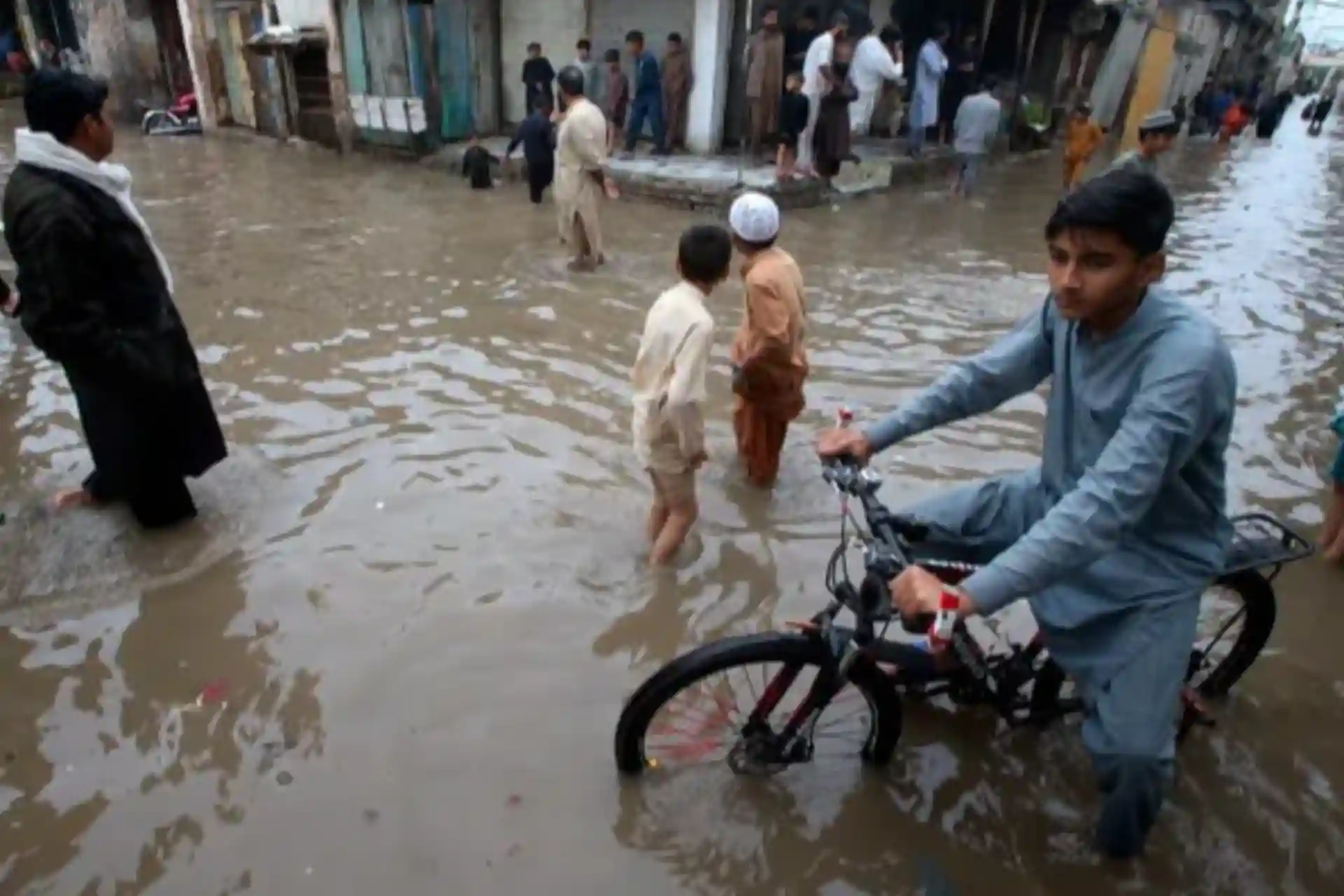Floods: common natural disasters or...
Floods occur every year in different parts of the world. We are used to taking messages on this topic for granted, we don't even pay attention. We believe that most floods have nothing to do with us because they happen in remote parts of the world. But it's time to put our heads down and get serious about it, and prepare for the potential disasters that await us. Because we are all in the same boat - the floods that happened in UAE, Oman, Tanzania or China are knocking on our door too. We felt the impact of the recent floods in Russia and Kazakhstan.
Floods occur every year in different parts of the world. However, this year's floods are very different from the previous ones: natural disasters in most areas were unprecedented in the history of weather observations. In particular, the floods in Kazakhstan were the worst in the last 80 years , in the UAE in 75 years , and in the Guangdong province of China in the last 50 years .
In Dubai alone, the average annual rainfall is 97 mm, with only 8 mm in April. However, on April 16, 250 mm of rain fell in the region in 24 hours, twice the annual average. As a result, life in the city was completely paralyzed. As a result of the disaster, 20 people died in the UAE and Oman.
It is clear that even China, which has advanced in technological development, was stunned by the unexpected disaster. Due to record rainfall, 82,000 people were temporarily displaced in the province of 127 million people, and 1.16 million people were left without electricity. At least 4 people were killed and 11 people were reported missing.
A loss of 50 billion dollars a year
According to the UN Intergovernmental Panel on Climate Change, the frequency and frequency of floods is increasing as a result of climate warming.
According to the British scientific journal Nature, floods cost the world economy 50 billion dollars a year. About 1.5 billion people, or 20 percent of the world's population, live at risk of flooding. Most of them are residents of middle or low-income countries.
Areas with a high risk of flooding are unevenly distributed across the map. In this regard, the most problematic countries are located in South and East Asia, and the population of China, Bangladesh, Myanmar, Thailand and Indonesia is particularly affected the most.
Experts of the European Environment Agency say that the increase in temperature causes an increase in the amount of precipitation. According to them, the frequency of floods will increase 10 times in our century. Without adaptation and greenhouse gas mitigation measures, 17 major coastal cities in the EU could face a sharp increase in annual average flood damage. Today, 102,000 people are affected by floods in these cities, but without necessary measures, this figure will increase to 740,000 people in 2050.
Floods cause not only material but also psychological damage
Floods are also harmful because they cause long-term consequences, such as the psychological trauma of displaced, homeless, and injured people, as well as the lack of workers and specialists in the reconstruction process. That is, the population and the government first fight against the natural disaster together, and then, for months and years, they are busy with eliminating their material, psychological and legal consequences.
In mid-July 2021, a number of regions in the German federal states of Rhineland-Palatinate and North Rhine-Westphalia were flooded after prolonged heavy rains. The disaster caused a lot of destruction and more than 180 victims in the area of several tens of kilometers in the narrow valley of the small river Ar, which flows into the Rhine, where about 40 thousand people live.
According to an article published in the federal scientific journal Bundesgesundheitsblatt, this flood caused serious psychological trauma for tens of thousands of residents of the Ar valley. In particular, the flooding has led to significant increases in mental illness, conduct disorders, emotional disturbances in children, depression and opioid abuse in the region. In particular, the authors noted an increase in the number of post-traumatic stress disorders, sleep disorders, depression and even suicidal tendencies six months after the flood.
The head of the Rhineland-Palatinate Chamber of Psychotherapists, Sabine Maur, told dpa that the impact of the floods on the mental health of the population is "massive and long-lasting". Many residents of the Ar Valley are "burdened with long recovery periods, endless construction projects, protracted court cases with authorities and insurance, and endless financial and family problems," he said.
Hopes are not lost
Scientists have discovered that it is possible to predict floods with the help of artificial intelligence. According to it, it is possible to get accurate information about a natural disaster 7 days before floods. According to an article published by the Google Research team, more than 460 million people living in more than 80 countries around the world can be warned about flood forecasts.
The Rotterdam government aims to adapt the local infrastructure to the consequences of climate change by 2030. The city administration announced the construction of additional coastal structures and landscaping along the river banks. At the moment, the design of underground water storage facilities is underway. Europe also has a flood warning system operated by the Copernicus Emergency Services. It is one of the main systems in the European Union that monitors river floods in the whole region. The program makes predictions for the next 3-10 days.
Also, today many countries of the world, including Uzbekistan, are introducing ESG (environmental, social and corporate governance) standards. According to him, any organization must undertake the obligation to introduce the principles of environmental and social responsibility (in simple words - doing good).
Each of us has a place
Climate changes, floods... these topics are usually considered as a topic that international organizations, governments, responsible experts and scientists are confused about. However, in life, everyone has their own place and task.
First of all, we must demonstrate our simple humane and simple civil position against "greenhouse gases", factories, heating boilers, smoke coming from greenhouses, and dust rising from construction sites, which serve to increase the temperature, and pressurize the government and relevant organizations to take necessary measures in this regard. (through speeches on social networks, appeals to our elected deputies, etc.) it is possible!
This winter, Tashkent did not fall from the list of the ten most polluted cities in the world, but as the days warmed up, it became relatively stable. This also indicates that coal and fuel oil are being burned in the air heating centers of our capital and in the greenhouses surrounding the suburbs. Each of us, as a citizen, parent, victim who breathes the air of this city and is harmed, can demand the government to take appropriate measures, install modern filters in the heating centers, ask the greenhouses not to pollute the air, or announce a boycott of their products.
Yes, by the way, it is worth mentioning that thermal centers and greenhouses also have a negative impact on global climate change. Today, bodies of black fuel are being detected in glaciers in all parts of the world, even in Antarctica. You know, because the white color completely reflects the sun's rays, the snow and glaciers did not melt so quickly even during the warm weather. The bodies absorb the heat of the sun together with the light, accelerating the melting of the eternal glaciers.
One more thing! All the phenomena in nature are connected with the actions and sins of mankind. This can be proven not only religiously, but also scientifically. Where there is a negative aura, there is also an increase in the intensity of natural disasters. Therefore, in order to protect ourselves from the scourge of water, from which our people always seek refuge, we must first refrain from sins, return to God, and then seek forgiveness without ceasing... In this regard, God Almighty said:
"Return to your Lord and submit to Him, before you are afflicted and then no help comes to you (i.e., before you face any calamity from Allah)!" (Zumar, verse 54).
Sanjar Said



